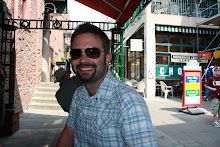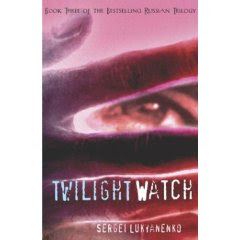
Tales of a post-apocalyptic world where survivors must struggle to keep their lives, and humanity, in tact have always been a favorite of mine, and as long as they have an original story and unique voice, they rarely go out of style for very long. The general themes are usually similar; a small group of people fight against overwhelming odds for their survival, and a new beginning for humankind. These stories tend to be deeply metaphorical, turning a mirror on each of us, making us consider just who we really are as people. At bottom, these tales demonstrate to us that what will always survive is not our piles of possessions or monuments to our own egos and intellects, but the indomitable human spirit, and our unflinching need to continue on.
"The Road" by Cormac Mccarthy is just one of these stories. The story takes us on the journey of a father and son making their way west years after the world they knew was consumed in flames. Their journey is slow going, the two trudging through the winter snow and falling ash with their meager belongings stuffed inside a found shopping cart. Each step along the way is carefully chosen, the father doing the best he can to keep himself and his young son out of danger. They constantly teeter on the brink of starvation and death, taking whatever they can scavenge from abandoned towns and homes. While the father carries a pistol for their protection, the single remaining bullet is being saved for a final moment of desperation.
As the story moves on, we see the relationship between the father and son evolve. The young son, at times a regular frightened young boy, and at others surprisingly compassionate and brave, looks to his father for guidance and hope as the road they travel begins to look more and more desperate. The father, who's concern is only for the pairs survival, takes no risks in confronting or engaging the few people they find along the way. The boy, however, in a few surprising moments of bravery, pleads with his father to help some of the destitute people they find along the way, including another young boy they see in the window of an abandoned home. The world the two find themselves in causes the father to see the world in a very fatalistic manner, trusting no one, taking no chances on compassion or charity for the people they encounter. But the boy begins to show him that, even in this world burnt and covered in a thick layer of ash, that the lives they encounter along the way are just as fragile and valuable as theirs.
Something does need to be said here for the prose; after all, this novel did win the Pulitzer Prize. One would expect a story about a gray and barren world to be sparsely written, and this novel is no exception. However, successfully styling prose in this fashion is a tough challenge, and sadly Mccarthy just was not up to the task. For this sort of style to work, it must be sparse yet clearly descriptive in places, which is where the author was lacking in this novel. The writing is sparse to a fault, and Mccarthy's insistence on using short, dry sentences and omitting punctuation borders on infuriating. Because Mccarthy seems to have the magical ability to turn his books into Oscar-winning movies, we will have to wait and see what a screen writer can make of this story, and trust that they can do it justice.

























